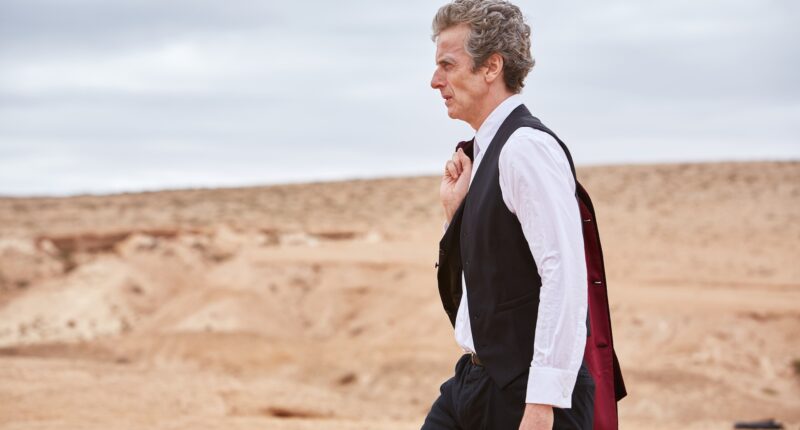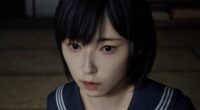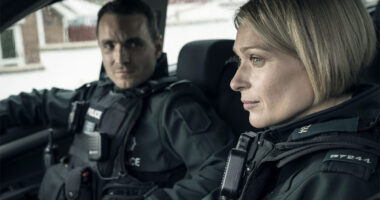It was an exciting new space for such well-worn characters to play in, and it took the season to some electrifying places, culminating tragically with Clara’s hubris catching up with her in “Face the Raven,” and the Doctor’s hubris catching up with him in “Heaven Sent” and “Hell Bent.”
Peter Capaldi’s Run Features An Epic Not-Epic Conclusion
One of many striking things about what was effectively a three-part season finale was how different each of the installments felt from each other. In terms of format, “Face The Raven” mostly functioned like a traditional episode of the show, and its “alien trap street” conceit could easily have made for a memorable standalone adventure, with the characters investigating a mystery in a strange new location, meeting various weirdos. But once Clara took the chronolock from Rigsy, things started to build up a sickening velocity, leading inexorably to the companion’s genuinely upsetting – if visually poetic – death.
It’s important to point out here that the episode was written by Sarah Dollard, making a hugely impressive Doctor Who debut – it’s honestly ludicrous that she’s only been brought back for one episode since. Analysing “Face the Raven” as part of Steven Moffat’s overall design for season 9 doesn’t mean minimising Dollard’s work or giving Moffat undue credit, it’s simply a fact of the showrunner model that he was responsible for the overall shape and thematic / character thrust of the season, and would obviously have had a hand in shaping episodes he didn’t actually write.
The tragic ending to “Face the Raven” led directly into “Heaven Sent,” which – even in a season containing a found footage episode – stretched the show’s format further than ever before. Rather than a “Doctor lite” episode (where the titular character features either sparingly or not at all, usually due to production logistics), this was a “Doctor only” episode, with Peter Capaldi commanding the screen for nearly an hour in a mind-bending, baroque exploration of grief. Writer, star, director, and production staff all brought their A-game to an experiment that could have been disastrous, the kind of experiment that you only get when a creative team has the skill – and proven success rate – to justify astronomical levels of confidence.
Finale “Hell Bent,” while structurally more traditional than its predecessor, was still a strange and potentially alienating proposition. Previous season finales had seen the universe destroyed by an exploding TARDIS, all of time being squashed together, the Doctor defending a planet from an endless siege, and the return of the Cybermen (along with a gender-swapped Master). But “Hell Bent,” with its ostentatiously long scenes in which the Doctor doesn’t say a single word, wasn’t about returning villains. It wasn’t about Gallifrey or the Time Lords, despite featuring them heavily, or the (arguably half-arsed) “hybrid” plotline.
It wasn’t even really about revenge, despite the Doctor’s threats in “Heaven Sent.” Ultimately, it was about the Doctor saving his best friend and going too far in the process, and finally realising that it was too dangerous for them to travel together. It was weird and uncomfortable and bittersweet, and rooted entirely in character, rather than epic spectacle.









